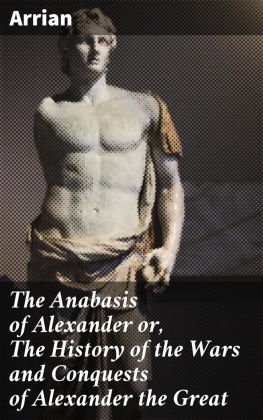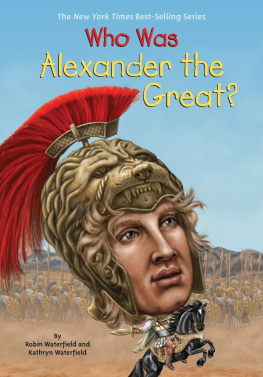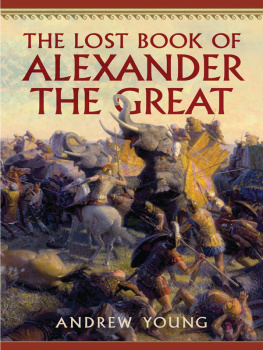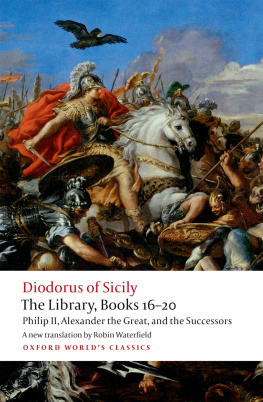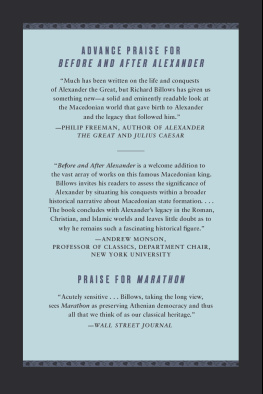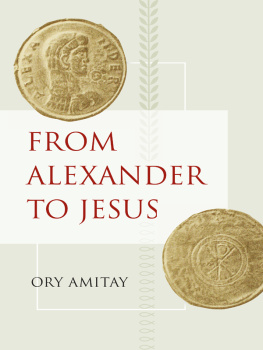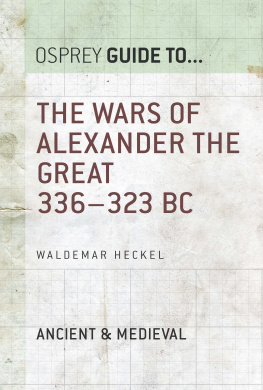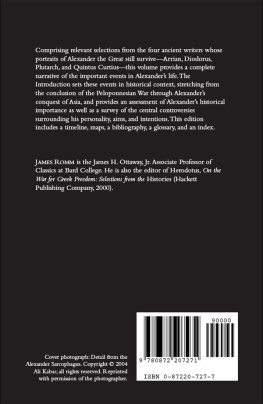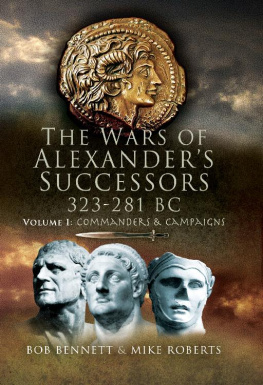LIFE AND WRITINGS OF ARRIAN.
Table of Contents
All we know of Arrian is derived from the notice of him in the Bibliotheca of Photius, who was Patriarch of Constantinople in the ninth century, and from a few incidental references in his own writings. We learn from Suidas that Dion Cassius wrote a biography of Arrian; but this work is not extant. Flavius Arrianus was born near the end of the first century of the Christian era, at Nicomedia, the capital of Bithynia. He became a pupil of the famous Stoic philosopher Epictetus, and afterwards went to Athens, where he received the surname of the younger Xenophon, from the fact that he occupied the same relation to Epictetus as Xenophon did to Socrates.
Photius says, that Arrian had a distinguished career in Rome, being entrusted with various political offices, and at last reaching the supreme dignity of consul under When Marcus Aurelius came to the throne, Arrian withdrew into private life and returned to his native city, Nicomedia. Here, according to Photius, he was appointed priest to Demeter and Persephone. He died in the reign of Marcus Aurelius.
The earlier literary efforts of Arrian were philosophical. After the expulsion of the philosophers from Rome, by Domitian, Epictetus delivered his lectures at Nicopolis, in Epirus, where it is probable that Arrian was his pupil.
I. These lectures were published by Arrian, under the title of Discourses of Epictetus, in eight books, the first four only of which have come down to us. He tells us himself in the introduction to this work, that he strove as far as possible to preserve the very words of his teacher as mementoes of his method of reasoning and diction. Gellius (xix. 1) speaks of a fifth book of these Discourses.
II. He also compiled The Enchiridion of Epictetus, an abstract of the philosophy of Epictetus, which is still extant. This manual of the Stoic moral philosophy was very popular, both among Pagans and Christians, for many centuries.
III. Another work by Arrian, in twelve books, distinct from the above, is mentioned by Photius under the title of , or Friendly Conversations with Epictetus. Of this only a few fragments survive.
IV. Another lost work of Arrian on the life and death of Epictetus is mentioned by Simplicius in the beginning of his Commentary on the Enchiridion.
V. Besides editing these philosophical works, Arrian
VI. The work named Indica, is a description of India, and was usually united in manuscripts with the Anabasis, as an eighth book. Though it may be looked upon as a supplement to the Anabasis, Arrian often refers in the one work to the other. From this we may infer that the author wished the Indica to be considered a distinct book from the Anabasis; and from the remark in Anab. v. 1, it is clear that it was composed after the Anabasis. This book is written in the Ionic dialect, like the History of Herodotus and the Indica of Ctesias. The latter untrustworthy book Arrian wished to supplant by his own narrative, principally based on the works of Megasthenes and Nearchus.
VII. Photius mentions among Arrians historical works:The Events after Alexander, in ten books, which gives the history of Alexanders successors. Photius (cod. 92) has preserved many extracts from this work.
VIII. Bithynica in eight books, a work often quoted by Eustathius in his commentaries to the Iliad and to Dionysius Periegetes. In regard to the contents of this book, Photius (cod. 93) says:The Bithynica commences from the mythical events of history and comes down as far as the death of the last Nicomedes, who at his death bequeathed his kingdom to the Romans, who had never been ruled by a king after the expulsion of Tarquin.
IX. Parthica, in seventeen books. See Photius (cod. 58).
X. History of the Alani. See Photius (cod. 93). Only fragments of this and the Parthica remain.
XI. Besides the large works, we learn from Photius (cod. 93) that Arrian wrote the biographies of the Corinthian Timoleon and of the Syracusan Dion. Lucian (Alex. 2), also states that he wrote the life of Tilliborus, the notorious robber of Asia Minor.
XII. A valuable geographical work by Arrian has come down to us, called , a description of a voyage round the coasts of the Euxine. This naval expedition was executed by him as Governor of Cappadocia. The Alani, or, Albani of the East, a tribe related to the Massagetae, were threatening to invade his province, and he made this voyage with a view of fortifying the most important strategic points on the coast. From section 26 of the Periplus we find that this voyage must have taken place about the year 131 or 132 A.D. ; for the death of King Cotys II., noticed in that passage as just dead, is proved by Bckhs investigations to have occurred in 131 A.D. Two other geographical works, The Periplus of the Red Sea and The Periplus of the Euxine, formerly ascribed to Arrian, are proved to belong to a later date.
XIII. A work on Tactics, composed 137 A.D. In many parts this book agrees nearly verbally with the larger work of Aelian on the same subject; but Leo Tacticus (vii. 85) expressly mentions the two works as distinct.
XIV. An Array of Battle against the Alani, is a fragment discovered in the seventeenth century in the Description of his Battles with the Alani, who invaded his province, probably 137 A.D. , as Arrian had previously feared.
XV. A small work by Arrian on the Chase, forms a supplement to Xenophons book on the same subject. It is entitled Cynegeticus of Arrian or the second Xenophon the Athenian.
The best editions of the Anabasis are the following:The editio princeps by Trincavelli, Venice, 1535; Gerbel, Strassburg, 1539; Henri Estienne, 1575; N. Blancardus, Amsterdam, 1668; J. Gronovius, Leyden, 1704; G. Raphelius, Amsterdam, 1757; A. C. Borkeck, Lemgovia, 1792; F. Schmieder, Leipzig, 1798; Tauchnitz edition, Leipzig, 1818; J. O. Ellendt, Knigsberg, 1832; C. W. Krger, Berlin, 1835; F. Dbner, Paris, 1846; K. Abicht, Leipzig, 1871.

